Obituary for Prof. Roger Pearson,
M.Sc. (Econ), Ph.D., (London): 1927–2023
Mark Cotterill
5,195 words
All of us at Heritage & Destiny were saddened to hear of the recent death of Dr. Roger Pearson, who was a long-standing subscriber to H&D magazine — in fact he was our eldest subscriber, aged 95, when he died in Washington, DC in January.
Dr. Pearson was a true English gentleman in every sense. He was born in London in 1927, but spent much of his childhood in Yorkshire. In October 1944, towards the end of the Second World War, he joined the British Army, despite his entitlement to exemption from military service to attend university after completing his Higher School Certificate examinations.
He had volunteered for military service and was inducted into the British Army with a view to obtaining a commission in the (British) Indian Army. After completing basic infantry and corps training with the Queens Royal Regiment in Maidstone, Kent, Roger and his fellow cadets embarked for India to attend the British Indian Army Pre-Officer Training School (Pre-OTS) at Bangalore.
I remember him telling me of how shocked and saddened he was by the behavior of the American GIs in occupied Japan and their brutal treatment of the local people, including beatings, theft, and numerous rapes of young Japanese women. I asked him about the conduct of our own squaddies over there and he said in general they were very well-behaved, and he would have expected nothing less from them. Dr. Pearson always had a very low opinion of American soldiers, and hated their “hazing” tactics, which he described as “very unprofessional.”
His final military service was as a 1st Lieutenant with the British Army in Singapore and Malaya, from January to April 1948.
On leaving the army in 1948, Roger attended university in England. After obtaining a B.Sc. (honours) in economics and sociology, he returned to India in 1952 in a business capacity, first as an assistant accountant in Calcutta (now Kolkata), but eventually as the CEO of several companies in East Pakistan (now Bangladesh), primarily in the tea industry — then Pakistan’s second-largest export. During this period (1959-65) he served on the Board of the Pakistan Tea Association and was elected President for1963-4. During that year he was ex officio a member of the Pakistan Tea Board, and the Managing Committee of the Federation of Pakistan Chambers of Commerce and Industry.
During his service in India and East Pakistan, Roger retained a strong interest in cultural matters. While in Calcutta (1955-1959), he made numerous journalistic contributions to The Statesman and to The Hindustan Standard as well as a few short broadcast presentations on All-India Radio. He also wrote Eastern Interlude: A Social History of the European Community in Calcutta from 1649-1911, described by the Hindustan Times (India) as “a vivid picture of European social life in India free from prejudices and prepossessions”; by the Hindustan Standard (India) as “objective . . . brilliant”; by the Indian PEN as “exceptionally well-balanced”; and by The Times (London) as “most diverting and readable . . . amusing and vivid . . . it comes to life on every page.” While I was working for him at his DC office, he republished the book (the original was well out of print by then) around 1999 and sold a further couple of hundred copies.
He was invited to serve as a member of the Cultural Advisory Committee of the Asiatic Society of Bengal, but this honor was brief because he soon afterwards left India for Pakistan. Roger Pearson is also proud of having saved the historic and architecturally important South Park Street Cemetery (dating from 1765-1815, when Calcutta was the capital of British India) from demolition. On his offer to set up a restoration fund, the Christian Burial Board, which lacked the funds to restore the decaying monuments, agreed to halt demolition and allow him to establish a fund which, with the eventual support of the Calcutta architect Bernard Matthews, Aurelius David Khan, ICS, and Sir John Woodhead, former and last British Governor of Bengal, succeeded in restoring most of the monuments and having the cemetery declared a National Monument by the Government of India.
Having lost his only brother (a Battle of Britain pilot, killed in North Africa shortly after his 21st birthday), four cousins (three pilots/one aircrew), and two close school friends, all without offspring, to the Second World War, Roger was shocked by the massive dysgenic loss resulting from internecine war in Europe.
He was also saddened by the cultural destruction when he visited war-torn Europe as a student in 1950 and found inspiration at a student summer school in Aachen University in Germany, funded by several European governments with the goal of promoting healing across Europe. Roger instinctively perceived its value, and four years later, when employed with a British bank in Calcutta, he founded Northern World, a cultural, non-political Journal of North European Friendship, with the particular goal of promoting reconciliation between the closely-related nations of Northern Europe who had so recently been engaged in destroying each other in two “Brothers’ Wars.”
Northern World was favorably received in like-minded circles, including the famed author J. R. R. Tolkien (who also subscribed to A. K. Chesterton’s Candour journal) and the agrarian environmentalist Rolf Gardiner, both of whom sent personal letters of congratulation. The success of this venture led Roger, now a rising business executive, to announce the formation of a society, along with Peter Huxley-Blythe, to promote North European friendship called The Northern League for North European Friendship (more commonly known as The Northern League). Under Roger’s leadership the League remained mainly a cultural and essentially non-political organization. With his business responsibilities mounting rapidly, by 1961 he found it necessary to resign his membership and from all Northern League activities.
Following his withdrawal, the Northern League became more political and published a new journal called The Northlander. British members included Robert Gayre, Alistair Harper, Colin Jordan, and John Tyndall,
By 1965, the situation for old-established British firms operating in India and Pakistan was deteriorating. China had already fought a war with India over the borders of Assam, and India was shortly to invade Pakistan and convert East Pakistan into Bangladesh. Roger could see the tide was turning and sold his own commercial interests and moved to America. On his departure he received a farewell address from the Pakistani employees stating, “Your love, affection and sympathy for your staff are never to be forgotten and specially during the reorganization we have found that you have put yourself out to a great extent in finding the retrenched staff employment, which we feel, can only be equalled by a very few.”
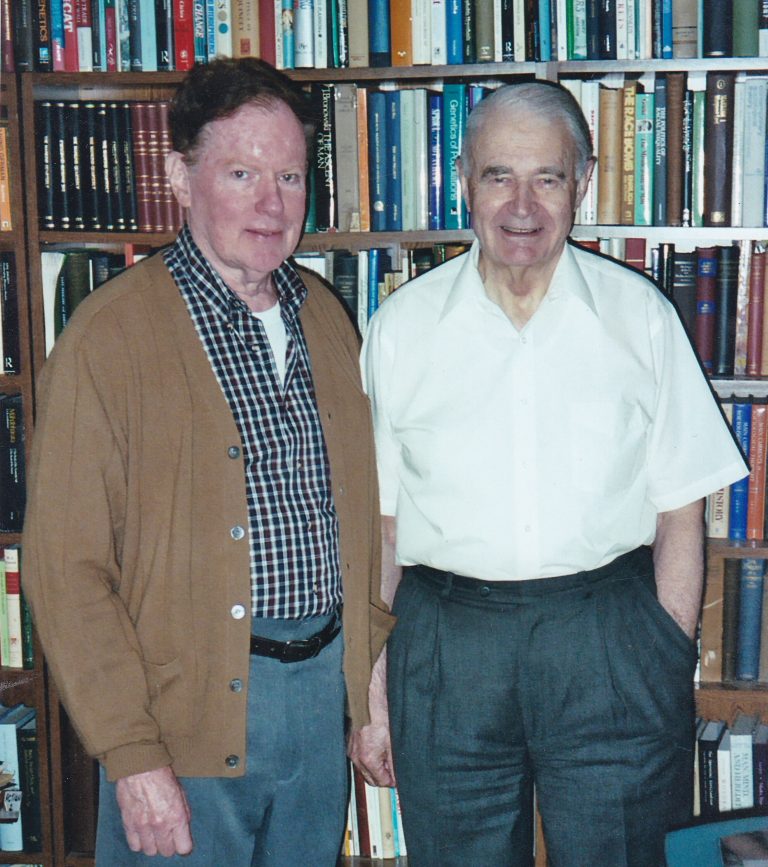
Dr. Roger Pearson (above right) has died aged 95: he is seen here with his good friend Dr. Ed Fields in Washington, DC in 2000, during the time when H&D editor Mark Cotterill worked at Dr. Pearson’s office.
After leaving Asia East, Pearson returned to England for a few months before leaving to the United States, just before the infamous 1965 Immigration Act, which was aimed at stopping British and other Western Europeans from emigrating freely to America. Once there, he spent a year or so in California editing and writing articles and engaging in lecturing before embarking on a ten-month tour of the Caribbean and southern Africa.

You can buy Greg Johnson’s White Identity Politics here.
Returning to the United States, he joined the faculty of the Department of Sociology at the University of Southern Mississippi as an Assistant Professor (1968), wrote his Introduction to Anthropology (published in 1974 by what was then the largest anthropology publishing house in the US), and accepted a position as Associate Professor and Department Head of the Sociology at Queen’s College, Charlotte (today Queens University of Charlotte) before returning to the University of Southern Mississippi (commonly known as “Ole Miss”) as full Professor and Chairman of a new Department of Anthropology offering both Bachelor’s and Master’s degrees.
At “Ole Miss” Dr. Pearson launched the the Journal of Indo-European Studies and the JIES Monograph series (1972) in collaboration with and under the guidance of the distinguished UCLA archaeologist Marija Gimbutas and University of Texas linguist and mythologist Edgar C. Polomé. He continued to publish JIES via The Institute for the Study of Man until well into his late 80s. It is now edited by Emily Blanchard West (St. Catherine).
In the mid-1960s Dr. Pearson teamed up with Willis Carto (who would later go on to run the Liberty Lobby and publish the Spotlight newspaper) for a while, and they published a magazine called Western Destiny (1965-66), which was probably the first high-quality journal the “American Right” had published since the end of the Second World War. They stayed friends up until the late 1990s, when Willis Carto fell out with Dr. Pearson for not being extreme enough! From 1966 to 1967, under the pen-name “Stephan Langton,” Dr. Pearson published (via Noontide Press) The New Patriot, a magazine devoted to “a responsible but penetrating inquiry into every aspect of the Jewish Question.”
However, not content with standing still, in 1974 Dr. Pearson accepted a position as Dean of Academic Affairs and Director of Research at Montana Tech of the University of Montana in Butte, Montana, a mile high in the beautiful Rocky Mountains, in the course of which he also became ex-officio Secretary of the Montana Energy and Magnetohydrodynamic Research and Development Institute.
During his time in Montana he joined the World Anti-Communist League (WACL). Further adventures now called, and after one year Dr. Pearson again moved, this time to Washington, DC (1975), where he founded the Council on American Affairs as the new US chapter. He went on to become Director of the North American Chapter of the WACL and publisher and editor of a new journal entitled The Journal of American Affairs (founded 1975), which later changed its name to The Journal of Social, Political, and Economic Studies). In the early years the journal published articles by scholars, senators, and congressmen. Dr. Pearson continued to publish JSPS via Scott-Townsend until well into his late 80s.
Traveling widely to attend WACL conferences throughout the Far East, South and Central America, and Europe, Dr. Pearson conferenced face-to-face with several heads of state, including King Faisal of Saudi Arabia. In 1978 he was elected World Chairman of the World Anti-Communist League and hosted the 1979 World Conference of the League in Washington, DC. The five-day proceedings were attended by upwards of a thousand WACL members and guests from free countries around the globe (including Lady Jane Birdwood from the UK). The opening ceremony was conducted with the aid of The US Joint Armed Services Honor Guard and the Marine Corps Band, and addressed by two US senators!

Delegates (including Lady Jane Birdwood from the UK) at a World Anti-Communist League conference in the 1970s, chaired by Dr. Roger Pearson.
While Pravda in Moscow was ready to condemn the conference out of hand, the Left-wing Washington Post (WP), which had had a reporter in attendance, totally ignored it for some 30 days while preparing a virtually full-page attack on both the WACL and its President, Dr. Pearson. Writing fancifully about “fascists” and South American “death squads,” the author of the Post article also levelled charges against Dr. Pearson’s alleged efforts to enroll “extremists” into the WACL — surely not!
Indeed, it is a fact that, unlike the delegates from Taiwan, Korea, Japan, and Central and Southern America, Pearson found the WACL European and Asian chapters replete with delegates who were almost soft on Communism (not including Lady Birdwood, of course!). One Indian delegate constantly attacked “neo-colonialism,” but seemed never to mention the very real Communist threat to freedom in the 1960s and ’70s.
Dr. Pearson consequently promoted the recruitment of more genuine anti-Communists, such as the Italian Social Movement (MSI), at that time the fourth largest political party in Italy, whose successors, the Fratelli d’Italia (Brothers of Italy), won Italy’s parliamentary elections in September 2022: their leader, Giorgia Meloni, became her country’s first female Prime Minister. I’m sure that brought a smile to his face!
After the WACL Dr. Pearson continued to work with the American Security Council, the Foreign Policy Research Institute, and the Journal of International Relations. But efforts by the liberal-Left to frustrate his work continued. His scientific comprehension of Darwinian reality, and the importance of genetic, cultural, and environmental concerns for the survival of humanity, made him a target for those who care only about the present generation, and not those numberless generations hopefully still to come. His sociological and anthropological training meant that he never stressed the biological at the expense of the environmental, because biological organisms are dependent on the ecosphere — and also on a culture that supports both the biological and the environmental heritage. The liberal-Left hated this, and they carried on a campaign against him and his work well into the 2000s.
Concerned about the future of the human race, Dr. Pearson became a Member of the British Eugenics Society, now known as the Galton Institute, as early as 1963, and was elected a Fellow in 1977. In 1979 he also assumed publication of Professor Robert Gayre’s Mankind Quarterly, which the latter had founded in 1960 with the aid of distinguished scholars such as Henry Vallois, S. D. Porteus, and Sir Charles B. Darwin. As the earlier generation of contributors passed on, he was able to recruit distinguished scholars to replace them, such as Joseph Campbell, Raymond B. Cattell, Hans Eysenck, and William Shockley. Dr. Pearson continued to publish MQ via Scott-Townsend until well into his late 80s, and around 2010 passed it over to Prof. Richard Lynn, who publishes it via the Ulster Institute for Social Research.
Not forgetting the importance of universities to the rising generation, and concerned by the premeditated campus disruptions during the 1960s and ’70s, Dr. Pearson joined the University Professors for Academic Order (UPAO), and served as its President 1980-84. Combining his credentials in the social sciences with his practical experience in the commercial world, his bank training in accounting, and his professional status as a former Fellow of the British Institute of Chartered Secretaries and Administrators and member of the British Institute of Directors, he also served as a Trustee of Benjamin Franklin University in Washington, DC for a number of years before that respected institution, noted for the quality of its alumni, was absorbed into Georgetown University.
In 1984 Pearson received a Certificate of Appreciation signed by General Daniel O. Graham, Director of the Defense Intelligence Agency under President Reagan, and later of High Frontier, expressing “grateful appreciation for the important work you have done to prepare the way for a more secure world.” He also received a 1985 written accolade from the US Department of Education for “outstanding service to US Education, and Education Reform Efforts.” But perhaps the most significant tribute, and one that annoyed Pearson’s critics most strongly, was a signed letter from President Ronald Reagan commending Pearson for “promoting and upholding those ideals and principles that we value at home and abroad . . . bringing to a wide audience the work of leading scholars who are supportive of a free enterprise economy, a firm and consistent foreign policy and a strong national defense.”
Later, an embarrassed White House official asked Dr. Pearson not to use the letter for publicity purposes after they had come under attack from the Washington Post!

Dr. Pearson introduced genuine committed activists to strengthen anti-Communist campaigns during the 1970s.
Eastern Interlude. Thacker Spink, Calcutta; Luzac and Co., London (1953) — republished by Scott-Townsend 1999.
Eugenics and Race. London: Clair Press; Los Angeles: Noontide Press (1958).
Blood Groups and Race. 2nd ed. London: Clair Press; Los Angeles: Noontide Press (1966).
Race & Civilisation. 2nd Ed. London: Clair Press; Los Angeles: Noontide Press (1966).
Early Civilizations of the Nordic Peoples. London: Northern World (1958); Los Angeles: Noontide Press (1965).
Introduction to Anthropology: An Ecological/Evolutionary Approach. New York: Holt Rinehart and Winston (1974).
Sino-Soviet Intervention in Africa. Council on American Affairs (1977).
Korea in the World Today. Washington, D.C.: Council on American Affairs (1978).
Ecology and Evolution. Washington, D.C.: Mankind Quarterly Monograph (1981).
Essays in Medical Anthropology. Washington, D.C.: Scott-Townsend Publishers (1981).
Anthropological Glossary. Malabar, FL: Krieger Publishing (1985).
Evolution, Creative Intelligence, and Intergroup Competition. Cliveden Press (1986).
William Shockley: Shockley on Eugenics and Race: The Application of Science to the Solution of Human Problems. Preface by Arthur Jensen. Washington, D.C.: Scott-Townsend Publishers (1992).
Race, Intelligence and Bias in Academe. Introduction by Hans Eysenck.[47] Scott-Townsend Publishers, Washington, D.C., 1991. (2nd. Ed. 1994).
Heredity and Humanity: Race, Eugenics and Modern Science. Washington, D.C.: Scott-Townsend Publishers (1991) [2nd ed. 1998].
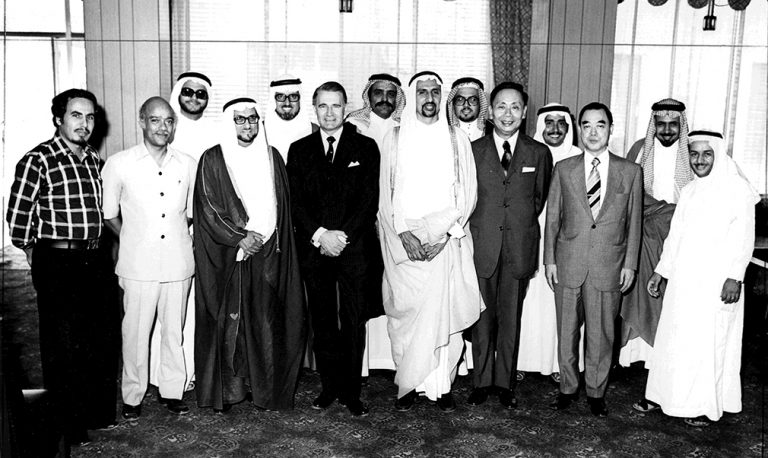
Dr. Pearson in 1975 with distinguished Saudi, Yemeni, and Taiwanese government ministers, ambassadors, and university leaders.
I ended up working there for over six years, and only left when the US government issued me with a ten-year exclusion order towards the end of 2002, so I had no choice but to leave and return to dear old Blighty.
From his DC office — which was only six or seven blocks from the White House, and only one block away from a black (now Hispanic) ghetto! — Dr. Pearson edited and published three journals: the Journal of Social, Political and Economic Studies (JSPS), the Journal of Indo-European Studies (JIES), and his pride and joy, the Mankind Quarterly (MQ). He also published numerous books and monographs, many sold through his mail order (and later online) bookshop, Scott-Townsend Publishers.
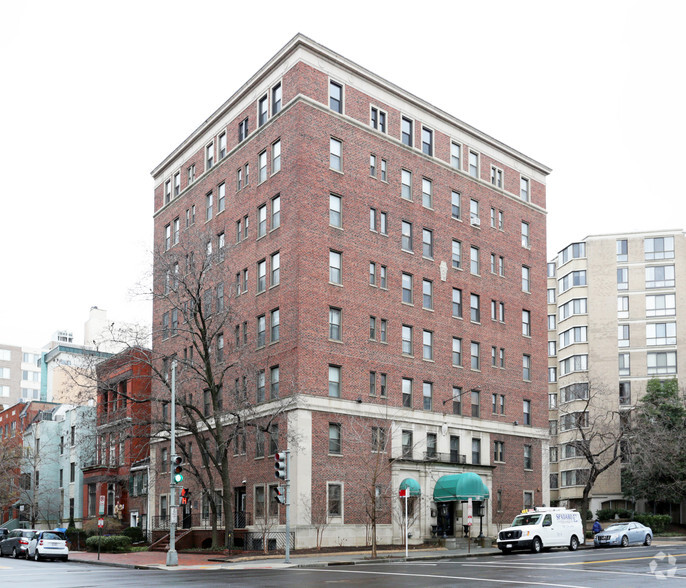
Dr. Pearson’s home and office at 1133 13th Street NW, Washington, DC. His office was on the ground floor, while he and his wife had a flat on the fourth floor.
During those six years working at his office at 1133 on 13th Street, NW, I met so many interesting people, including to name but a few Dr. Philippe Rushton, Prof. Glayde Whitney, Attorney Sam Dickson, Paul Fromm, and the men with the deep pockets, Harry Weyher and Bill Regnery.
American Renaissance, which is run by Jared Taylor, used to hold their annual conference near to their office in northern Virginia, not too far away from downtown Washington, DC, so many conference attendees used to pop into our office to say hello, and would sometimes take Dr. Pearson out for lunch en route to the conference. It was always nice to meet new and old friends.
Two other “doctors” used to visit the office from time to time when passing through DC, Dr. William L. Pierce and Dr. Edward R. Fields. They would normally go out with Dr. Pearson for either lunch or dinner, depending on the time of the visit. I later found out that during Dr. Pierce’s last visit, the FBI had staked out the building! They tailed them both to a local restaurant, sat inside at a table close to theirs while they ate and talked, then tailed them back to the office. It seems that every time Dr. Pierce left the National Alliance compound in West Virginia to go out of town, the Feds went with him! Anyway, it was good to see American taxes were put to good use!
Dr. Pearson was already in his office (which was the room next door to mine), hard at work. He normally got there before me, around 8:45 AM most mornings. He did not have very far to travel, however, as he lived in an apartment just above the office, on the fourth or fifth floor (I think). We said our usual pleasantries, and I then got on with going through the mail from the previous day (I did not normally work on a Monday) and from the weekend.

You can buy Greg Johnson’s The White Nationalist Manifesto here
Looking back on it, around the time I was getting my breakfast, at around 8:46 AM, New York was turning into a scene of devastation after the first of the two planes smashed into the North Tower of the World Trade Center. And at around the time I was sitting down at my desk and starting to open the mail, around 9:03 AM, the second plane was smashing into the South Tower. Both 110-story towers collapsed within an hour and 42 minutes, leading to the collapse of the other World Trade Center structures, including 7 World Trade Center, and significantly damaging all the surrounding buildings.
Of course, Dr. Pearson and I were oblivious to all this as we did not have a radio or TV on in either office, and it was just before the days of smartphones. The first we knew that something was wrong was when Dr. Pearson’s wife Marion rang him from their upstairs flat, where I guess she was watching the events unfold on TV. He told me what she had told him, but to honest it did not really sink in there and then what was going on. So, we just carried on working as normal.
I guess five minutes later, just before 9: 20 AM, we got another phone call which I answered this time. It was British National Party leader Nick Griffin! He told us basically what Mrs. Pearson had just told us: that two hijacked planes had crashed into the Twin Towers at the World Trade Center, but then added that two more planes were now on their way to DC to blow up the White House and Capitol, and that we needed to get out quickly!
Of course, even had we wanted to get out — which we didn’t — where were we meant to get out to? Nick meant well, however, and I appreciate him warning us anyway, even though there was nothing we could do about it. I thanked him and told him we would not be moving from the building at this time, but if he could ring back with any updates, it would be very useful.
I talked over the situation with Dr. Pearson, and he said he did not think the planes would even reach DC, and even if they did, their targets were so far away from us that we would “probably be okay”! So, we sat back down at our desks and carried on working.
I can remember hearing an explosion, and then the noise of hundreds of other office workers and locals outside our office on the streets. I said to Dr. Pearson that I was going outside to see what the heck was happening, because we had no windows in the office, so I could not peer out. Once outside I could see all the smoke in the distance, and word got round that the Pentagon had been hit. I can’t remember there being a panic, but a lot of my fellow DC workers were very concerned as word had got around that the fourth plane was on its way to DC! But that plane, United 93, never reached DC, and the US authorities even to this day don’t know for sure if the target was to have been the White House or the Capitol.
The story put about by President Bush’s spin-doctors that the passengers aboard United 93 decided to act once they realized all was lost — i.e., storm the flight deck, attack the terrorists, and bring the plane down before it reached Washington — sadly did not happen. Why would it? It never happened on the other three hijacked flights, and they had many more passengers. What did really happen was that Bush ordered United 93 to be shot down before it got anywhere near DC. This flight was the only plane not to hit its intended target, crashing in a field near Shanksville, Pennsylvania after being shot down, about 170 miles from DC at 10:03 AM. Once the news spread around DC that plane number four had crashed and that there were probably no more hijacked planes up in the skies, most of the workers either returned to their offices — as I did — or they left and started to make their way back home.
I made my way back to the office, where Dr. Pearson was still working. He informed me he was then going upstairs to his flat for his lunch. So, I just went back to work. Strange when you look back on it.
My girlfriend of the time (Jackie) was calling the office every half an hour or so, asking when I was going to get out of DC and come home. I told her the same thing each time: as soon as I can.
Dr. Pearson came back down to the office around 2 PM, I guess, and told me to pack up for the day, since it would take me ages to get home as there was no public transport. Even most of the “enriched” taxi drivers had gone home by then. So, I called Jackie back from the office landline and said I was going to start to make my way back to Falls Church, but to be prepared for a long wait!
A full report of the events from “9-11” can be found on the H&D website – click here for details.
There are so many incredible stories I could tell you about Dr. Roger Pearson and the goings on at the office and around DC, including our trips to the Martin Luther King Jr. Post Office, which used to run out of stamps; our trip with Zach (who use to work part time at the office himself in the early days) to Burger King, where Dr. P. ordered off the cuff rather than from the set menu, which completely baffled the young black counter assistant; the day Dr. Pearson telephoned Zach’s home and his brother Corey answered the phone and thought it was, and I quote, “the King of England calling”; the day Dr. P. went for a lunchtime drink with Zach and I in a bar near McPherson Square, and a lefty-looking bloke with very long hair stood by us waiting to be served. Zach said to Dr. P. “What do you make of him?”, to which Dr. P. replied, “He’s probably a homosexual”! The day after Princess Diana died — I was at work, even though it was a Sunday — Dr. P. and I went out for lunch near the White House and Yanks were coming up to us in the restaurant to give us their condolences, as if we knew her!
Of course, we had our ups and downs, but overall I had six very enjoyable years working for Dr. Pearson, where I learnt not only how to run an efficient office (a well-oiled machine — you should see the H&D office now!), but so much more about race, eugenics, anthropology, history, and American politics.
The last time I spoke to him was shortly before Christmas. I think my phone call had woken him up from an afternoon nap, and it took a couple of minutes for him to realize who I was. But after that he was fine, and we had a good old natter, chatting about old times in DC and the political situation in the UK. He was still very sharp even at 95.
I will sorely miss Dr. Roger Pearson. He was one of a kind. And if there is a Valhalla, he will surely have a place there.
From Chapter 8 of Fagrskinna, one of the kings’ sagas, written around 1220, this composition is by an anonymous author from the tenth century and is referred to as Eiríksmál, It describes Eric Bloodaxe and five other kings arriving in Valhalla after their death. The poem begins with comments by Odin (in Old Norse, Óðinn):
“What kind of a dream is it,” said Óðinn,
“in which just before daybreak,
I thought I cleared Valhǫll,
for coming of slain men?
I waked the Einherjar,
bade valkyries rise up,
to strew the bench,
and scour the beakers,
Wine to carry,
as for a king’s coming,
here to me I expect
heroes’ coming from the world,
certain great ones,
so glad is my heart.”
There will also be an obituary in a future issue of Heritage and Destiny magazine.
Reprinted from Heritage & Destiny.
* * *
Like all journals of dissident ideas, Counter-Currents depends on the support of readers like you. Help us compete with the censors of the Left and the violent accelerationists of the Right with a donation today. (The easiest way to help is with an e-check donation. All you need is your checkbook.)
For other ways to donate, click here.
Obituary%20for%20Prof.%20Roger%20Pearson%2C%0AM.Sc.%20%28Econ%29%2C%20Ph.D.%2C%20%28London%29%3A%201927%E2%80%932023%0A
Share
Enjoyed this article?
Be the first to leave a tip in the jar!
Related
-
Notes on Japan: Not the Nationalist Utopia Some Imagine
-
Sperging the Second World War: A Response to Travis LeBlanc
-
The Holocaust Card Can No Longer Be Played
-
On Second World War Fetishism
-
The Power of Myth: Remembering Joseph Campbell (March 26, 1904–October 30, 1987)
-
Is Ethnonationalism Compatible with Genetic Interests in Practice? Part 1
-
Bo Gritz, Vietnam Veteran and Military Adventurer, Part 1: 1939-1986
-
Korean Capitalism and Prussian Socialism
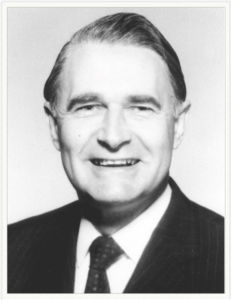

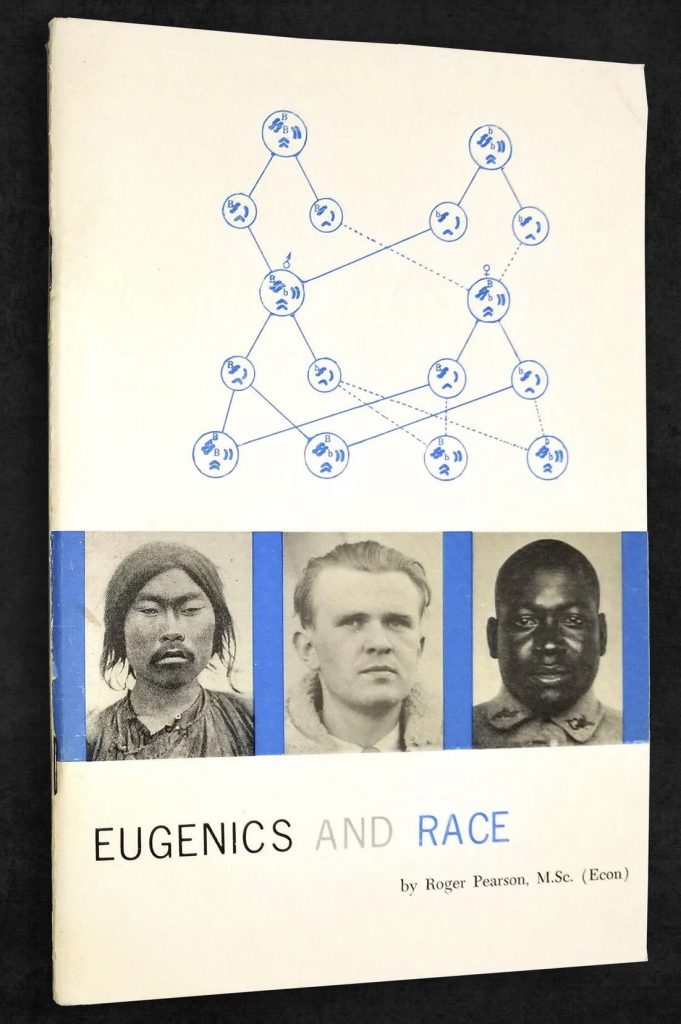

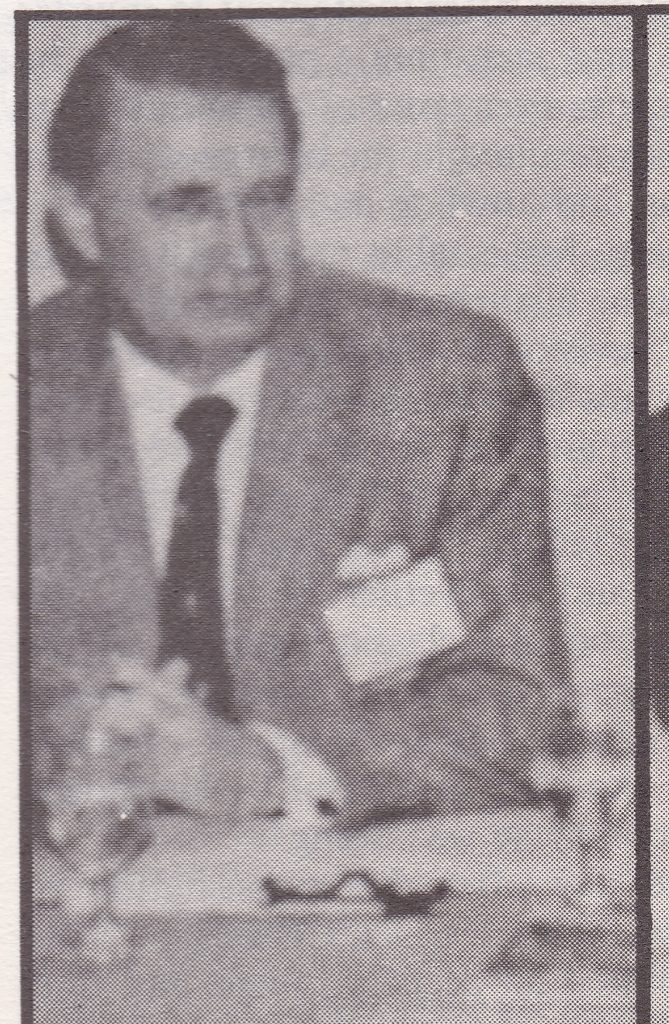
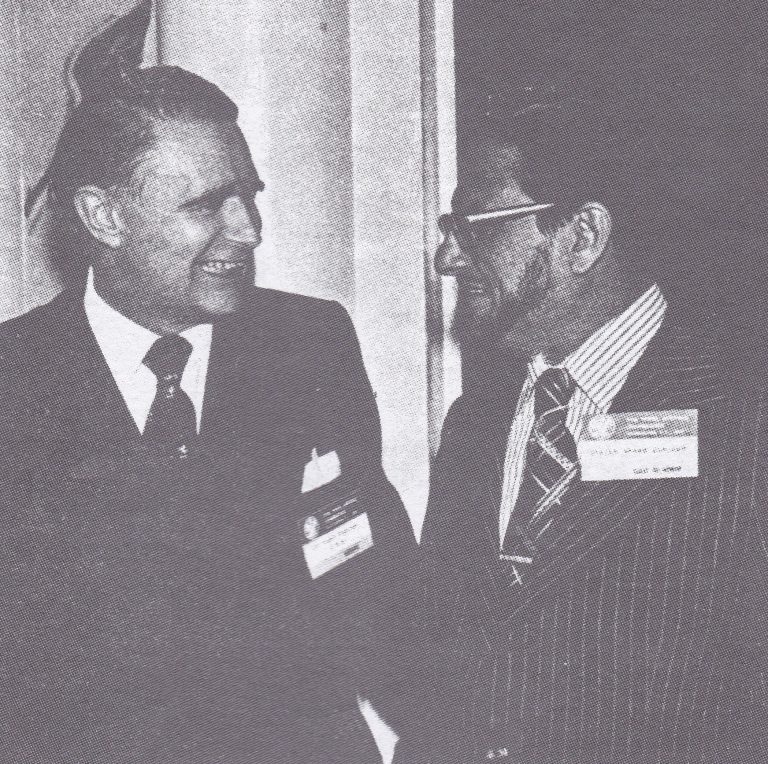
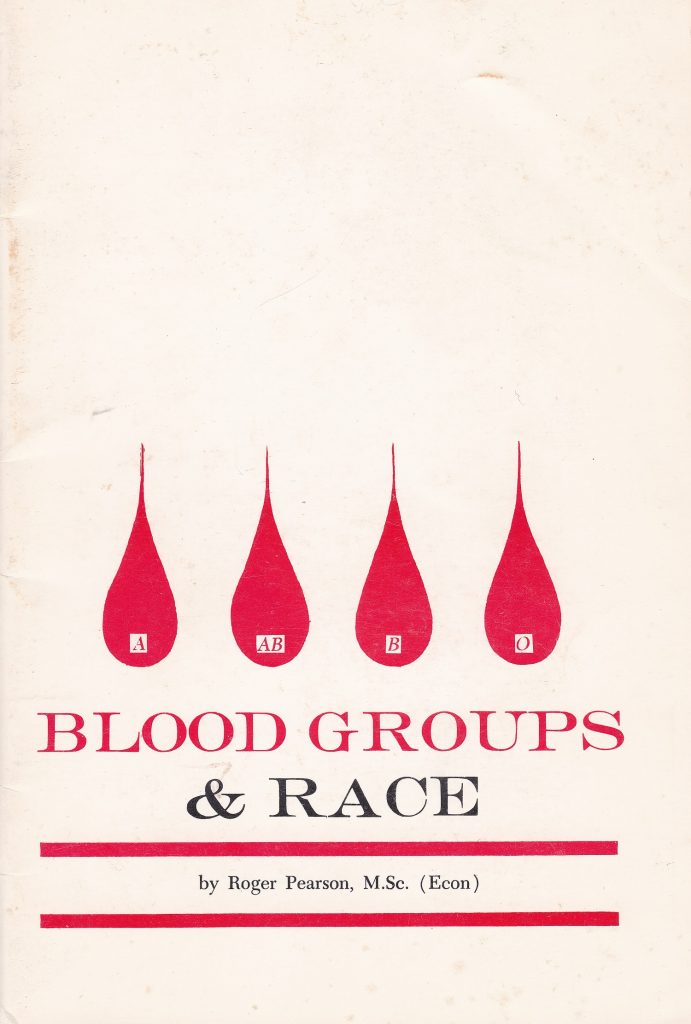
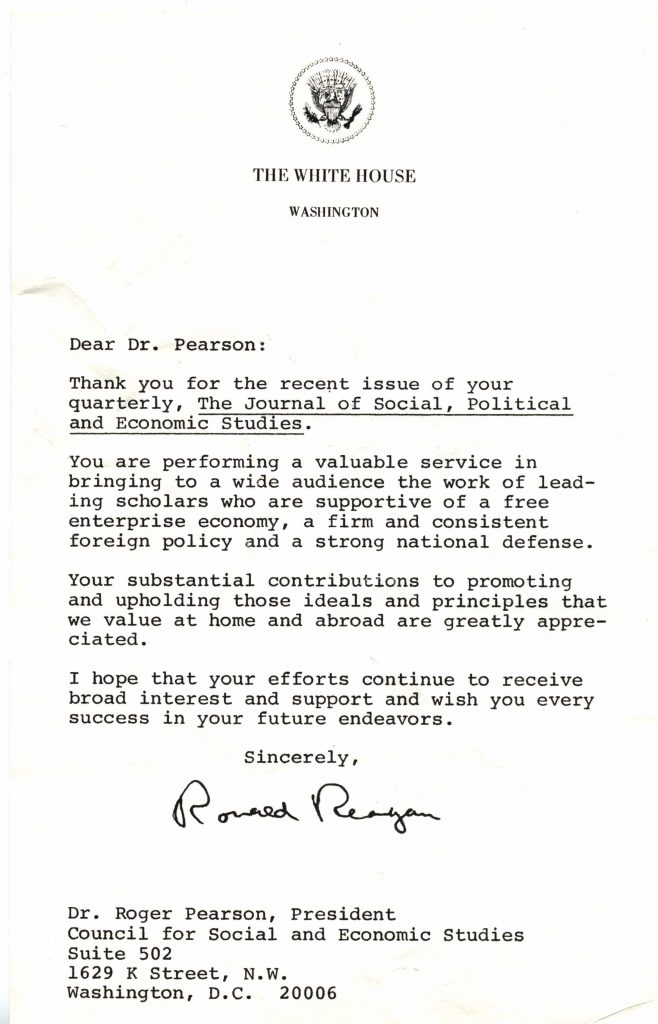

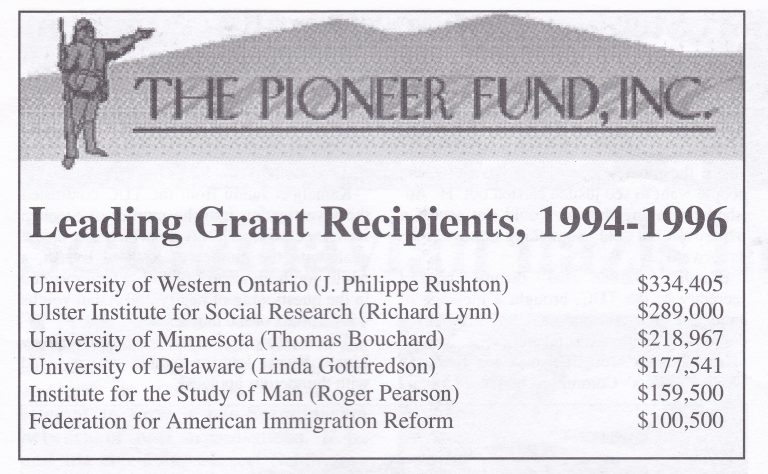
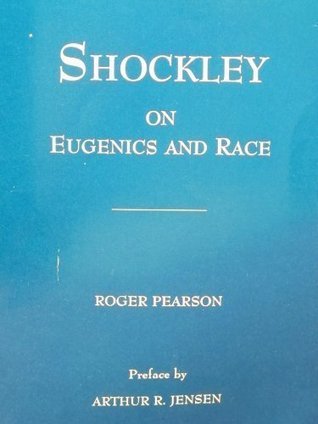
4 comments
RIP Professor Pearson.
I hadn’t heard about Flight 93 getting shot down. Very interesting.
A big thank you for reprinting this (and I’m delighted that Cotterill, with whom I once had a very informative conversation at a rightist gathering about 30 years ago, is still fighting the good fight). Wonderful reminiscences.
I wish I could obtain more of Pearson’s works, but from what I have, I recommend the Shockley anthology, as well as the depressing look (from the early 90s – imagine an updated edition through 2022!) at race and bias in academe.
But I especially commend to CC readers Heredity and Humanity, as well as two excellent (but I suspect today, very hard to find) monographs listed above: “Ecology and Evolution” (no publication date) (edited by Pearson, and including two important articles by him, as well as an explosive {by implication} contribution from the great and prolific psychologist Raymond Cattell: “Ethics and the Social Sciences”); and “Evolution, Creative Intelligence, and Intergroup Competition” (1986) (this one, however, is incorrectly listed above as a Pearson work, unless its editor, one “Alan McGregor”, was a pseudonym of Pearson’s; it contains a very important article by McGregor titled “The Evolutionary Function of Prejudice”, among other worthy contributions). Perhaps free epub or PDF copies can be found online (I rather doubt it, however).
The University of Southern Mississippi isn’t known as Ole Miss. It’s known as Southern Miss. The University of Mississippi, which is at the northern part of the state at Oxford, is known as Ole Miss.
What an impressive legacy this man has left. Is there a collection somewhere with scans of his books? A quick search showed that they seem to be very obscure these days
Comments are closed.
If you have Paywall access,
simply login first to see your comment auto-approved.
Note on comments privacy & moderation
Your email is never published nor shared.
Comments are moderated. If you don't see your comment, please be patient. If approved, it will appear here soon. Do not post your comment a second time.